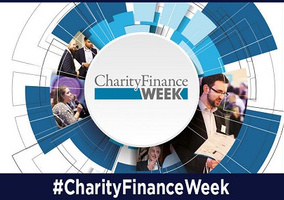There has been an increase in the number of large charities choosing to report on their impact on the climate and equality, diversity and inclusion (EDI), according to new research.
The research, published in the October edition of Charity Finance, is the latest review of annual reports and accounts carried out for the magazine by Helena Wilkinson, partner and head of charities and not-for-profit at accountancy firm Price Bailey.
This year, the research covers the charities ranked 101 to 200 in the Charity Finance 250 Index, the UK’s largest charities as measured by three-year average income, with average incomes ranging from £47.9m to £81.0m.
Wilkinson writes that 63 charities included in the research publish their EDI policy or a statement on how EDI is being addressed as part of their annual report and accounts.
This compares with 51 charities in 2022, when this tier was last covered in the research.
However, it lags behind the UK’s very largest charities. Last year, when this research covered the Charity Finance 100 Index, 72 included EDI information.
“Four charities report their ethnicity pay gap which compares with nearly 20 in the 100 Index last year, and two address the ethnicity of the board,” Wilkinson said.
Carbon footprint
Another area that Wilkinson said “remains a growing area of additional disclosure” is carbon reporting and climate change.
In this area, 55 of the organisations in the sample included section 172 statements, which cover the impact of the company’s operations on the community and the environment, up from 50 in 2022. Again this is slightly behind the 100 largest charities, of which 74 published these statements.
However, 74 charities in the sample published their carbon footprint, up from 69 in 2022, which Wilkinson said demonstrates “voluntary disclosure in this area”.
“Some 22 disclose their net-zero targets and plan, compared with only 15 in the 100 Index last year,” she wrote.
“Most are referencing 2030 or 2050 as their net-zero target. This is an area that funders and the public remain interested in, with expectations that disclosure will only increase as we approach 2030.”
‘Disappointing’ progress
Summarising the overall findings of the research, Wilkinson concluded: “It was disappointing following last year’s fantastic improvement in the 100 Index reports to see less progress in respect of impact reporting being made in this next tier down.
“Only 49% have articulated their strategy and how they measure success, up from 27% in this tier in my 2022 report,” she wrote.
“However, this compares poorly with the 88% disclosing this information in the 100 Index review last year.
“Therefore, although there is some progress, as nearly half now have changed their reporting for the better, still more will hopefully follow suit.
“Demonstrating how your charity is able to determine its activities and success is powerful.”
Related articles












